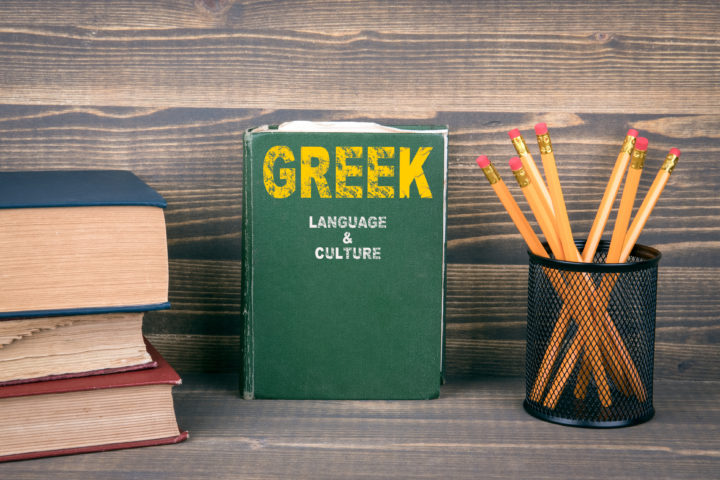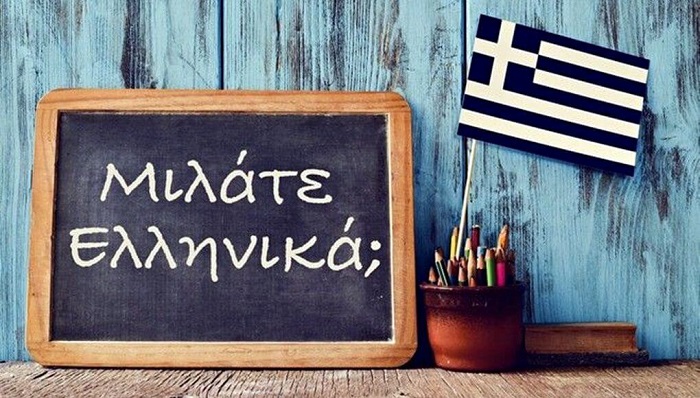By Anastasios M. Tamis*
Socio-linguistic research studies have attested that for any non-dominant language, such as Greek to be maintained in a bilingual environment without diglossia at inter-generational level requires the following:
- The existence of a populous base of speakers;
- Adequate function of language use;
- Acceptability within the broader society;
- Stability of the given language.
The Vitality of Greek as a world heritage language
Greek does not simply derive its significance only as a community language or as the norm of the Greek-speaking sector of the Australia community, which is vigorously organized, politically robust, and strongly committed to maintenance of its Hellenic Australian identity.

The significance of Greek for Australia derives principally from heritage, moral, intellectual, academic, linguistic, and utilitarian reasons.
- Moral and intellectual, because Greek is the only extant Heritage Language of the Western World known and used in Australia;
- Academic because Greek language (in its Ancient, medieval and modern variants) is being taught together with Classical studies and the Greek history and culture at over 2,000 teaching institutions around the globe attracting more than 300,000 students.
- Linguistic because by learning Greek language students and indeed world citizens have the opportunity to learn about and understand better their own language as a very significant percentage of their mother tongue, etymologically is derived from Greek words.
- Utilitarian, because of an established presence of a vast number of Greek-speaking residents (currently estimated to 400,000) and of many more thousands of Australians with ancestral, sentimental, professional, cultural, and intellectual ties with Greece, Cyprus, and the millions of Hellenes in the Diaspora.

Whence, the linguistic World Heritage status of Greek is illustrated by a number of aspects outlined below, which inevitably propagate its importance to be included in the Australian national curriculum of languages other than English:
(a) Greek is the oldest and sole survival of ancient European languages bearing a linguistic tradition of 4,000 years. It has been the basis of the European civilization and naturally has fundamentally affected other languages and cultures.
(b) Greek remained the language of global civilization from 480 BC to A.D. 1500 in both oral and written forms and was the official vernacular of the entire Hellenized world from Western Europe to India. Hence, the general use of Greek was of enormous importance to the spread of Christianity.
(c) Greek is the sole modern descendant of the Indo-European family of languages, in which fundamental texts of Western Civilization and Christian scripture were formulated and transmitted through the ages. Even in 21st century Greek-speaking Patriarchates in Constantinople (Istanbul), Jerusalem, Alexandria, Cyprus and Greece commemorate the thousand years of Greek presence in Europe, Asia and Africa.

(d) Roman Catholicism and Greek Orthodox were the two Christian worlds in Europe and Asia. The entire world of Greek Christians, incorporating the Russians, Rumanians, Ukrainians, Bulgarians, Serbs, Macedoslavs, and Syro-Lebanese used Greek as their official language of liturgy and sermons.
(e) Greek is designated as one of the five official languages of the European Union and is rated as a major world-language in spite of the comparatively modest number of its current native speakers.
(f) Greek composed by reputed individuals of intellect such as Plato, Aristotle, Homer, Aeschylus, Sophocles, Euripides, Herodotus, Thucydides, Plutarch, Hippocrates, the Great Fathers of the Christian Church, the great hymnographers, philologists, mathematicians, physicians, anthropologists, ethnologists. Naturally, the notions born herein, expressed through the words of the Greek language, pervaded the languages and the civilizations of the world and left eternal mark on what is known as the European Civilization. Studying the Greek language is not a product of fashion or of utilitarian motives. It has its origins in man’s desire to study the great texts about great issues.
*Professor Anastasios M. Tamis taught at Universities in Australia and abroad, was the creator and founding director of the Dardalis Archives of the Hellenic Diaspora and is currently the President of the Australian Institute of Macedonian Studies (AIMS).


